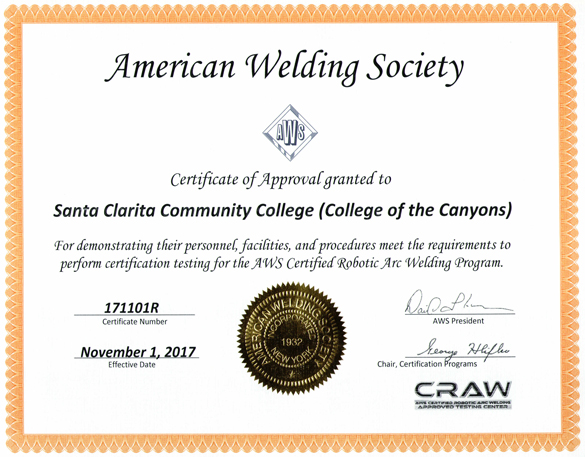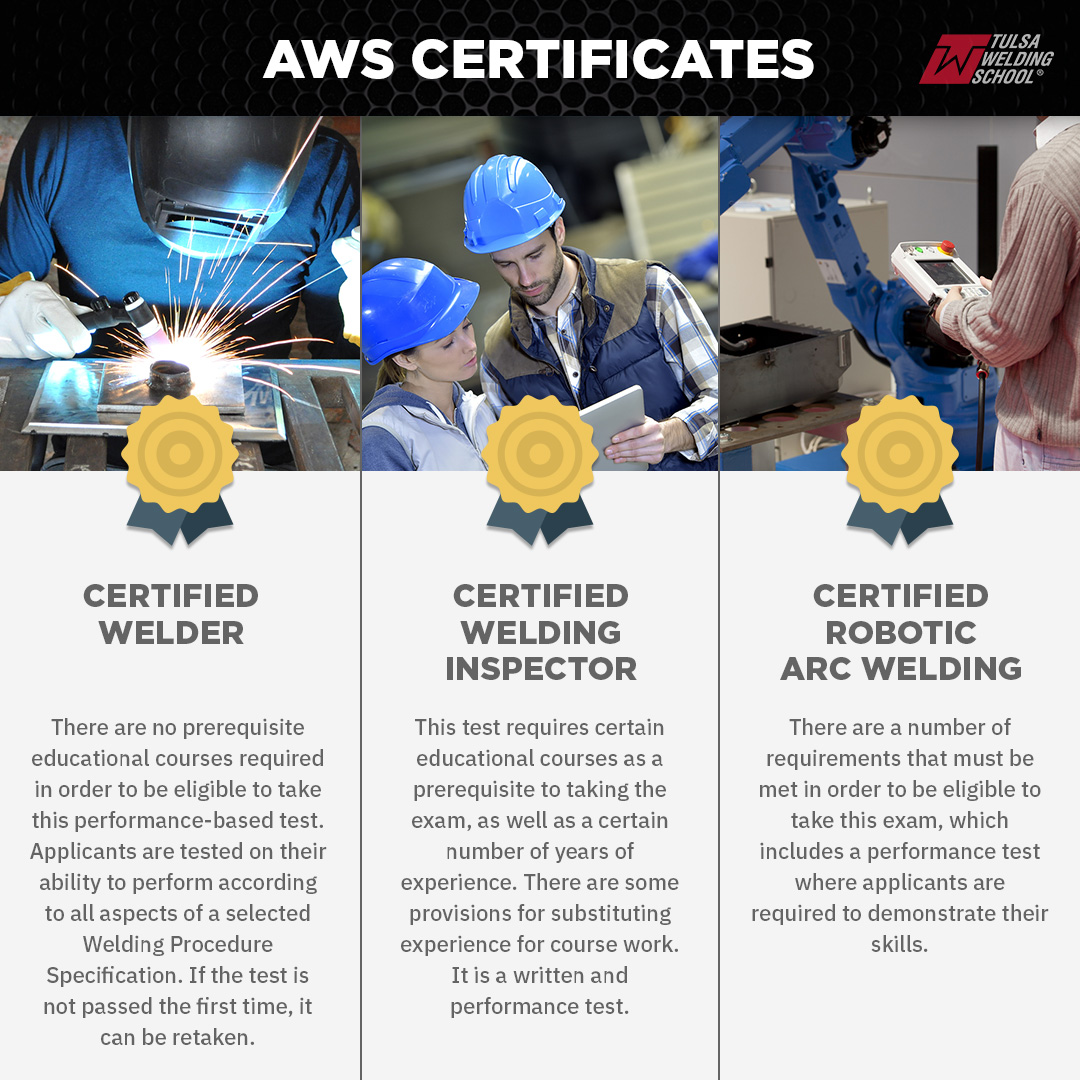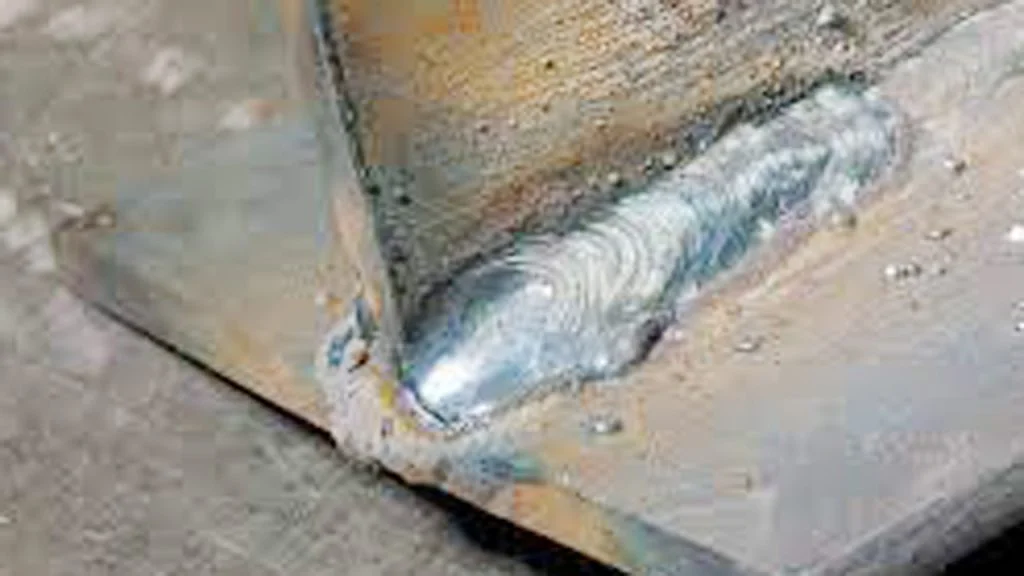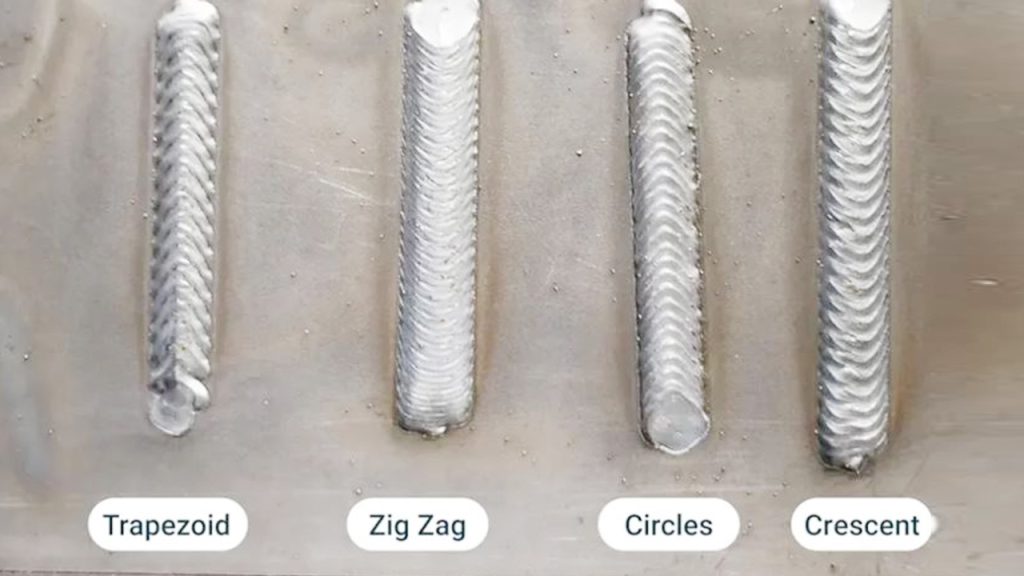To get certified for welding, you have several options. You can choose from local community colleges, technical schools, and specialized welding programs.
Welding certification can open doors to many job opportunities in various industries. Whether you are new to welding or want to advance your skills, finding the right certification program is crucial. Different programs offer various levels of training and specialization.
Some focus on basic welding techniques, while others cover advanced skills and safety practices. Your choice will depend on your career goals and current skill level. In this blog post, we will explore the best places where you can get certified for welding, helping you make an informed decision and set you on the path to a successful welding career.

Credit: www.allstatecareer.edu
Introduction To Welding Certification
So, you’re thinking about diving into the world of welding? That’s fantastic! Whether you’re a complete beginner or someone with a bit of hands-on experience, getting certified can open up a world of opportunities. But first, let’s understand what welding certification is all about and why it’s essential.
Importance Of Certification
Why should you bother with certification? Well, think of welding certification as your golden ticket. It’s like getting a driver’s license, but for welding. Without it, your skills might not be recognized, and you could miss out on many job opportunities.
Certification proves you have the knowledge and expertise to handle various welding tasks safely and effectively. It shows employers that you’re serious about your craft. Plus, it often leads to higher pay and better job security.
Imagine this: two welders apply for the same job. One has a certification, and the other doesn’t. Who do you think gets the job? You guessed it – the certified welder. Why? Because employers want someone they can trust. Certification is that trust.
Career Opportunities
What doors can certification open for you? Plenty! Welding is needed in many industries, from construction to manufacturing, and even in art. Here are some career paths you can explore with welding certification:
- Construction Welder: Work on buildings, bridges, and other infrastructure projects.
- Manufacturing Welder: Create and repair machinery, vehicles, and other products.
- Pipeline Welder: Specialize in welding pipes for oil and gas companies.
- Underwater Welder: If you love adventure, consider welding underwater structures.
- Welding Inspector: Ensure other welders’ work meets quality standards.
The best part? Welding skills are in high demand worldwide. So, if you ever dream of working abroad, certification can make that dream a reality.
Plus, welding isn’t just a job – it’s a skill you can use in everyday life. Fixing things around the house or creating art pieces are just a few ways welding can be useful.
So, what are you waiting for? Let’s get that certification and start your welding journey!
Top Welding Schools
Getting certified in welding opens doors to many job opportunities. Finding the right school is crucial. The top welding schools offer excellent training programs. These schools provide hands-on experience and knowledgeable instructors. They ensure students gain essential skills for a successful welding career.
Lincoln Electric Welding School
Lincoln Electric Welding School is renowned in the welding industry. Founded in 1917, it has a long history of excellence. The school offers a variety of welding courses. These include basic, intermediate, and advanced levels. Students get hands-on training with modern equipment. This prepares them for real-world welding jobs. The instructors are industry experts. They provide personalized guidance to each student. Lincoln Electric Welding School ensures students are job-ready upon graduation.
Hobart Institute Of Welding Technology
Hobart Institute of Welding Technology is another top choice. Established in 1930, it has trained thousands of welders. The school offers comprehensive welding programs. These cover all major welding techniques. Students receive practical training and theoretical knowledge. The curriculum is updated regularly. This keeps pace with industry standards. The instructors are experienced professionals. They focus on developing each student’s skills. Hobart Institute graduates are highly sought after by employers.
Community Colleges Offering Welding Programs
Community colleges offer a great way to get certified for welding. They provide flexible schedules and affordable tuition. Many community colleges have excellent welding programs.
Benefits Of Community Colleges
Community colleges are often more affordable than four-year universities. They offer smaller class sizes, which means more personalized attention. Many colleges have modern facilities and up-to-date equipment. This helps students learn the latest welding techniques.
Most community colleges have flexible schedules. This allows students to work while they study. Many programs offer evening and weekend classes. This is perfect for those with busy lives.
Popular Community College Programs
Many community colleges offer Associate of Applied Science (AAS) degrees in Welding Technology. These programs usually take about two years to complete. They cover a range of skills, from basic welding to advanced techniques.
Certificate programs are also popular. These programs take less time and focus on specific skills. For example, you might earn a certificate in pipe welding or structural welding. These programs are great for those who want to enter the workforce quickly.
Some community colleges offer specialized training programs. These might include underwater welding or welding inspection. These programs provide unique skills that can lead to higher-paying jobs.

Credit: www.canyons.edu
Online Welding Certification Programs
Welding certification programs are crucial for anyone seeking to advance their welding career. With the rise of online education, many people now prefer online welding certification programs. These programs offer flexibility, allowing students to learn at their own pace. They also provide access to a wide range of resources.
Advantages Of Online Programs
Online welding certification programs offer several benefits. First, they provide flexibility. You can study from anywhere, anytime. This is ideal for those with busy schedules. Second, online programs often cost less than traditional classes. You save on transportation and accommodation costs.
Third, you can access a wide range of resources. Online platforms offer videos, tutorials, and interactive lessons. This helps you understand complex concepts easily. Lastly, online programs often provide access to experienced instructors. You can ask questions and get feedback without waiting for class time.
Top Online Courses
Several top online courses offer welding certification. The American Welding Society (AWS) provides comprehensive online programs. Their courses cover various welding techniques and safety protocols. They also offer certifications recognized globally.
Another excellent choice is the Hobart Institute of Welding Technology. Their online courses cover the basics and advanced welding techniques. They also offer a range of certification programs. You can choose based on your skill level and career goals.
Coursera also offers welding courses from reputed institutions. These courses are designed for both beginners and professionals. They provide a flexible learning schedule and valuable certification upon completion.
Union Apprenticeship Programs
Union Apprenticeship Programs provide an excellent path to become a certified welder. These programs offer hands-on training, classroom instruction, and real-world experience. They combine work and study, making them ideal for those seeking both education and employment.
Overview Of Apprenticeships
An apprenticeship program typically lasts three to five years. During this time, apprentices work under experienced welders. They gain practical skills and earn while they learn. Classroom training covers welding theory, safety standards, and technical skills. This balanced approach ensures apprentices are well-prepared for a welding career.
Union apprenticeships are highly regarded. They often lead to stable, well-paying jobs. Many unions have partnerships with local employers. This means apprentices have job opportunities upon completion.
How To Apply
To apply for a union apprenticeship program, start by contacting local unions. They provide information on available programs and application requirements. Most unions require applicants to be at least 18 years old and have a high school diploma or equivalent.
The application process may include a written test and an interview. Some unions also require a physical exam to ensure candidates can handle the demands of welding. After meeting these requirements, successful applicants are placed on a list. They are called to start the apprenticeship as positions become available.
Trade Schools For Welding
Trade schools offer focused training for careers like welding. These institutions provide hands-on experience and expert instruction. They prepare students for certification in a shorter time than traditional colleges.
Top Trade Schools
Many trade schools excel in welding training. Institutions like Lincoln Tech and Tulsa Welding School are well-known. They provide quality programs with good industry connections.
Program Features
Welding programs at trade schools cover various techniques. Students learn MIG, TIG, and Stick welding. Courses also include safety practices and blueprint reading. Hands-on training is a key component.
Programs often last from six months to two years. They are designed to fit different schedules, including night classes. Graduates receive a certificate, making them ready for the workforce.
Military Welding Programs
Welding is a skill in high demand, and getting certified can open many doors. One interesting route to consider is through military welding programs. These programs offer a unique blend of rigorous training, real-world experience, and a disciplined environment. Plus, they come with the added benefits of serving your country and gaining valuable life skills. But what exactly can you expect from military welding programs? Let’s dive into the details.
Opportunities In The Military
Joining the military opens up a world of opportunities, especially in specialized fields like welding. The military needs welders to maintain and repair equipment, build infrastructure, and support various missions. Here are some key points:
- Comprehensive Training: Military welding programs provide extensive training. You’ll learn different welding techniques and safety practices. The training is hands-on and intensive, ensuring you gain practical experience.
- High Standards: The military maintains high standards for its welders. You’ll be expected to perform at your best, which helps in developing a strong work ethic and professionalism.
- Travel Opportunities: Military service can take you around the world. Imagine welding on a ship in the middle of the ocean or working on a base in a foreign country. It’s an adventure like no other!
Transitioning To Civilian Careers
One of the best parts about military welding programs is how well they prepare you for civilian life. After completing your service, you’ll have skills that are highly valued in the job market. Here’s why:
- Certification: Military welding programs often come with certifications that are recognized in the civilian world. This makes it easier to find a job after your service.
- Experience: The practical experience you gain is second to none. Employers love hiring veterans because they know you’ve been trained to the highest standards and have real-world experience.
- Veterans’ Programs: Many companies have programs specifically for hiring veterans. These programs often provide additional support and training, making your transition smoother.
In conclusion, military welding programs offer a unique path to becoming a certified welder. With extensive training, high standards, and the opportunity to travel, it’s a path worth considering. Plus, the skills and certifications you gain will serve you well in civilian life. Whether you’re looking for an adventure or a solid career foundation, military welding programs have a lot to offer. So why not give it a shot?
Have any questions or need more information? Feel free to leave a comment below. We’re here to help!
Certification Requirements
Becoming a certified welder opens many job opportunities. Certification shows you have the skills and knowledge needed for the job. But what does it take to get certified? Let’s explore the certification requirements.
Types Of Certifications
Welding certifications vary based on the type of welding. Common types include MIG, TIG, and Stick welding. Each type requires specific skills and training.
Certifications are also categorized by the governing bodies. The American Welding Society (AWS) offers widely recognized certifications. Other organizations include the American Society of Mechanical Engineers (ASME) and the International Organization for Standardization (ISO).
Steps To Get Certified
First, choose the type of welding you want to specialize in. Then, complete a welding training program. Many community colleges and vocational schools offer these programs.
Next, gain hands-on experience. Practice is key to becoming proficient in welding. After gaining enough experience, you can take the certification exam.
The exam includes a written test and a practical test. The written test assesses your theoretical knowledge. The practical test evaluates your welding skills.
Pass both tests to become certified. Remember to renew your certification as required. Most certifications need renewal every few years.
Financial Aid And Scholarships
When considering a career in welding, one crucial aspect to think about is the financial cost of training and certification. Fortunately, there are various financial aids and scholarships available that can help ease the burden. In this section, we will explore the different types of financial aid and scholarships available, and how you can apply for them.
Available Financial Aid
There are several types of financial aid options for aspiring welders. Here are some common ones:
- Federal Grants: These are funds provided by the government and do not need to be repaid. Examples include the Pell Grant and the Federal Supplemental Educational Opportunity Grant (FSEOG).
- State Grants: Many states offer grants for vocational training, including welding programs. The eligibility and amounts vary from state to state.
- Student Loans: While these need to be repaid, federal student loans typically have lower interest rates and more flexible repayment options compared to private loans.
- Work-Study Programs: These programs provide part-time jobs for students with financial need, allowing them to earn money to help pay education expenses.
How To Apply For Scholarships
Scholarships can significantly reduce the cost of welding certification. Here’s a simple guide on how to apply for them:
- Research: Look for scholarships specific to welding and vocational training. Websites like Fastweb and Scholarships.com are good starting points.
- Prepare Your Documents: Common requirements include academic transcripts, letters of recommendation, and personal essays.
- Fill Out Applications: Ensure you meet all eligibility criteria and complete the application forms accurately. Missing information can lead to disqualification.
- Submit Before Deadlines: Pay attention to deadlines. Late submissions are generally not accepted.
- Follow Up: After submitting your applications, follow up to ensure they were received and are being processed.
Remember, persistence is key. Applying for multiple scholarships can increase your chances of receiving financial aid.
So, if you’re ready to start your welding career but worried about the costs, don’t be! With the right financial aid and scholarships, your dream of becoming a certified welder is within reach.

Credit: www.tws.edu
Frequently Asked Questions
How To Get A Certified Welder Certificate?
To get a certified welder certificate, complete a welding training program. Pass the welding certification exam. Gain practical experience. Apply for certification through an accredited body like the American Welding Society (AWS). Maintain your certification with regular renewals.
What Is The Fastest To Get A Welder’s Certificate?
Enroll in an intensive welding program at a trade school or community college. Complete the coursework in a few weeks. Pass the certification exam.
Are Welding Certificates Worth It?
Yes, welding certificates are worth it. They enhance job prospects, ensure higher salaries, and validate skills. Employers prefer certified welders.
Do I Need A License To Weld In Texas?
No, you don’t need a license to weld in Texas. However, some employers may require certification.
Conclusion
There are many places to get certified in welding. Choose a program that fits your needs. Consider factors like course content, cost, and location. Online options provide flexibility for busy schedules. Local community colleges often have excellent programs. Research and compare to find the best fit.
Certification opens doors to better job opportunities. Start your welding career journey today by choosing the right certification program. Happy welding!

